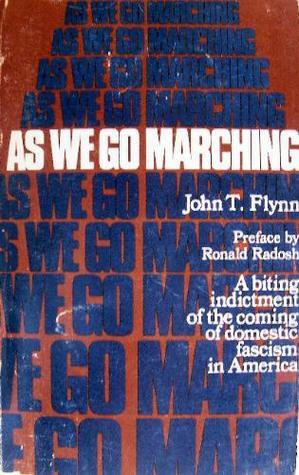What do you think?
Rate this book


272 pages, Paperback
First published January 1, 1944
Fascism will come at the hands of perfectly authentic Americans, as violently against Hitler and Mussolini as the next one, but who are convinced that the present economic system is washed up and that the present political system in America has outlived its usefulness and who wish to commit this country to the rule of the bureaucratic state; interfering in the affairs of the states and cities; taking part in the management of industry and finance and agriculture; assuming the role of great national banker and investor, borrowing billions every year and spending them on all sorts of projects through which such a government can paralyze opposition and command public support; marshaling great armies and navies at crushing costs to support the industry of war and preparation for war which will become our greatest industry; and adding to all this the most romantic adventures in global planning, regeneration, and domination all to be done under the authority of a powerfully centralized government in which the executive will hold in effect all the powers with Congress reduced to the role of a debating society. There is your fascist. And the sooner America realizes this dreadful fact the sooner it will arm itself to make an end of American fascism masquerading under the guise of the champion of democracy.